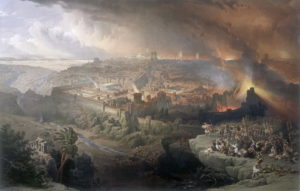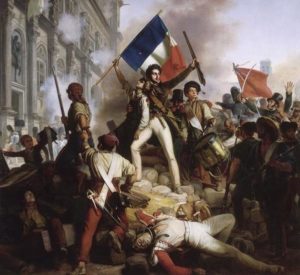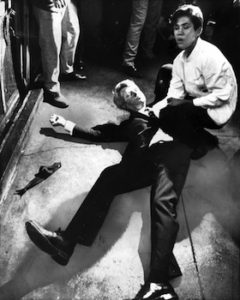A momentous day in history

70
The siege of Jerusalem
On this day, Roman legions under the future emperor Titus breached the second wall of besieged Jerusalem, occupied by Jewish rebels. When, after vicious street-fighting the city was taken, Titus ordered it and its great Temple obliterated. The historian Josephus who had been used by the Romans as a mediator described the destruction:
There was left nothing to make those that came thither believe it [Jerusalem] had ever been inhabited. This was the end which Jerusalem came to by the madness of those that were for innovations; a city otherwise of great magnificence, and of mighty fame among all mankind.
And truly, the very view itself was a melancholy thing; for those places which were adorned with trees and pleasant gardens, were now become desolate country every way, and its trees were all cut down. Nor could any foreigner that had formerly seen Judaea and the most beautiful suburbs of the city, and now saw it as a desert, but lament and mourn sadly at so great a change. For the war had laid all signs of beauty quite waste. Nor had anyone who had known the place before, had come on a sudden to it now, would he have known it again. But though he [a foreigner] were at the city itself, yet would he have inquired for it.

1832
Rebellion in Paris
A rebellion in 1830 had ended the Bourbon dynasty in France and replaced it with what was hoped to be a new, modern constitutional monarchy under Louis-Philippe, thought to be a friend to democracy. By 1832 a number of forces were united in their distaste for this new Orleanist king: Bonapartists wanted the descendants of Napoleon to reign; Legitimists wanted the Bourbons back; and republicans wanted an end to kings altogether. Economic hard times, outbreaks of cholera, and accusations of corruption added fuel to the fire. Republican cells used the funeral of a popular general to start riots that they would would bring down the government as in the disturbances of 1830 but this time the army and the king stood firm and put down the insurgents. This rebellion was the inspiration for Victor Hugo’s Les Misérables.

1968
The assassination of Robert Kennedy
After the murder of his brother John in 1963, Robert Kennedy became the darling of liberal Democrats who saw in him a chance to replace the despised Lyndon Johnson as president. In 1968 Kennedy held back from challenging Johnson in the primaries until he saw that Eugene McCarthy’s candidacy had revealed a dissatisfaction with the Vietnam War that he might capitalize on and in March he announced that he would join the race. Johnson’s surprise decision not to run again left Kennedy the media favourite in a field that included McCarthy and Vice President Hubert Humphrey who led in delegates. On June 5 after winning the California primary, Kennedy was shot dead in the Ambassador Hotel by Palestinian Sirhan Sirhan who hated Kennedy for his support of Israel. His diary read: “”My determination to eliminate RFK is becoming more and more of an unshakable obsession. RFK must die. RFK must be killed. Robert F. Kennedy must be assassinated….. Robert F. Kennedy must be assassinated before 5 June 68.” [That date was the anniversary of the start of the Six Day War].
In the 1968 election Richard Nixon was elected president.